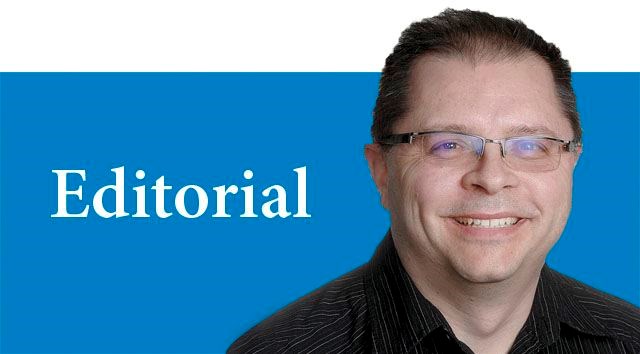A person can only run so far for so long from the demons in pursuit.
The demons are born in the aftermath of trauma, multiply with each violation and mature over the years, turning the mind against itself.
Drugs, alcohol, sex, gambling and other socially unacceptable addictions can quiet the demons for periods of time but never for long and at great personal and financial cost. More socially acceptable addictions, particularly work but even hobbies, volunteering and physical fitness, allow those suffering to hide in plain sight, earning public accolades for what is actually avoidance.
Theo Fleury used them all because he needed them all.
Speaking on Monday night at CNC and again Tuesday morning at UNBC, the former NHL superstar said his demons were born in the alcoholism of his dad, a man whose NHL dreams were shattered by a broken leg suffered during a baseball game, and the addiction to pills of his mother. As the oldest child, he recalled being the ref and breaking up more than a few fights between his parents.
He ran to the hockey arena, to the comfort of teammates and the steady mentoring of coaches. That may have been enough to help him cope with his chaotic home life but a crueler trauma awaited him at the hands of Graham James, a junior hockey scout and coach. Fleury refuses to state his name but bluntly states how he was repeatedly raped and shamed into silence.
Fleury ran his way through the Western Hockey League, where his 472 career points 30 years ago are still 10th overall in league history, ahead of his contemporaries Joe Sakic Mike Modano and Trevor Linden.
Fleury ran into the NHL, where he won a Stanley Cup in 1989, a month before his 21st birthday. A 51-goal season, seven All-Star Game appearances, an Olympic gold medal and the best overtime goal celebration in NHL history (April 14, 1991 - YouTube it) would follow.
But he couldn't run forever.
Kicked out of hockey, hooked on booze and cocaine, he put a loaded gun in his mouth.
And stopped.
His journey since then has been about survival and speaking out. He is now a champion for the victims of sexual abuse and childhood trauma. When they come to him and say "me too," he listens, he hugs them and he thanks them for having the courage to share.
He is as certain of his path now as he was when he intercepted Mark Messier's pass at centre ice in that fateful 1991 playoff game, driving hard up the ice towards goalie Grant Fuhr.
While many have been inspired by Fleury since he came forward in 2009 with his tragic story, his hockey brethren have been less forgiving of his off-ice behaviour. He admits that he hurt many people, inside and outside of the game, in the throes of his addiction.
Fleury speaks of accepting consequences for one's actions and he's still paying. After nine years of eligibility, he has yet to be named to the Hockey Hall of Fame, despite the fact that his career numbers place him squarely among the top 100 NHL players of all time.
As trauma takes many forms, so does the reaction of others to the news of the suffering of one in their midst.
In Thursday's Citizen, reporter Christine Hinzmann will introduce you to a local man suffering from post-traumatic stress disorder. Like Fleury, this man has had an amazing career in his chosen profession, is widely respected among his colleagues and well-known in the community. Like Fleury, this man's drive to succeed was significantly fuelled by desire to escape his demons. Like Fleury, the only way to survive was to finally turn and face the darkness.
As Cariboo-Prince George MP Todd Doherty's private member's bill calling for a national framework on PTSD heads to second reading in the House of Commons on Thursday, this man has decided to take a courageous step forward in public, to support Doherty's bill and to tell his story, to say "me too."
As Fleury has stated in his public appearances and as the local man said during his interview with Hinzmann, speaking openly about trauma and its effects is therapeutic. The demons are out in the open for all to say.
Speaking out is a revelation to those who thought they were alone, a voice for those who thought no one was listening and an inspiration to everyone else.



